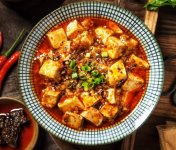故事川菜:揭示中国美食文化的千年传承
中国的美食文化源远流长,不仅仅是满足味蕾的享受,更是一段跨越千年的故事。在中国各个地区,都有不同的特色菜系,其中,川菜作为中国最具代表性的菜系之一,承载着丰富的历史和文化底蕴。
川菜的历史渊源
川菜,又称川味菜,是指源自四川地区的独特菜系。川菜起源于公元三国时期的蜀地,在历经了秦、汉、隋、唐等朝代的发展过程中,逐渐形成了独具特色的烹饪风格。以成都为代表的川菜之所以能够经久不衰,融入了古代汉族文化中的众多元素。
川菜的发展受到了自然环境和地理条件的影响。四川地处盆地,气候湿润,物产丰富,这为川菜的酸、辣、麻等口味提供了得天独厚的优势。同时,四川地区交通发达,与其他地区的交流也为川菜的发展提供了机遇。
川菜的独特风味
川菜以其麻辣鲜香而闻名于世,其独特的风味吸引了无数食客的味蕾。川菜烹调重视调料的使用和烹饪方法的精妙,善于运用豆瓣酱、郫县豆瓣、花椒、辣椒等特色调料,使菜品口感丰富而美味。同时,川菜还注重色、香、味的和谐,讲究菜品的造型艺术,使得每道菜都成为一幅可口的视觉盛宴。
川菜不仅烹调方法多样,更是涵盖了凉菜、火锅菜、熘炒菜、煲汤等多种菜肴类型。无论是麻辣火锅、夫妻肺片、水煮鱼还是宫保鸡丁,都透露着浓厚的川菜风味。每一道川菜都是通过厨师们的巧手和智慧,在烹饪的过程中注入了他们对美食的热爱和激情。
川菜的文化底蕴
川菜不仅仅是一种美食,更是中国文化的重要组成部分。川菜展现了中国人民勤劳智慧和热情好客的品质,体现了中国国粹的精髓。川菜的故事不仅仅是关于食材和烹饪方法,更多的是一种生活哲学和精神追求。
川菜的历史渊源、独特风味都与中国古代文化有着密切的关联。饺子、面条等川菜中常见的食物,代表了中国人民的聪明才智和亲情美德。川菜中丰富的传统节日菜肴也蕴含着人民对美好生活的向往和祝福。
川菜的国际影响
随着全球化的发展,川菜已经不再局限于中国国内,而是融入了世界的菜肴文化中。越来越多的国际餐饮业开始关注和推崇川菜的独特魅力。
川菜之所以能够在全球范围内受到欢迎,除了其独特的口味和丰富的菜肴类型外,更重要的是它代表了中国文化的传统和现代融合。川菜的特色调料、烹饪技巧,以及厨师们的创新精神,使得川菜成为了世界美食舞台上的一颗璀璨明珠。
让我们一起品味川菜的魅力,感受其中蕴含的千年文化传承。无论是品尝川菜的美味,还是探寻其背后的故事,都能够让我们更深入地了解中国的美食文化,感受到中华民族的智慧与情感。
htmlEnglish Translation:
Story Sichuan Cuisine: Revealing the Millennium Heritage of Chinese Food Culture
Chinese food culture has a long-standing history and is not merely about satisfying our taste buds; it is a story that spans thousands of years. In different regions of China, there are various distinctive culinary traditions. Among them, Sichuan cuisine, as one of the most representative styles, carries a rich historical and cultural heritage.
The Historical Origin of Sichuan Cuisine
Sichuan cuisine, also known as Szechuan cuisine, refers to the unique culinary tradition originating from the Sichuan region. Sichuan cuisine originated in the Shu region during the Three Kingdoms period and gradually formed its distinct cooking style through the development during the Qin, Han, Sui, Tang, and other dynasties. Chengdu, as the representative city of Sichuan cuisine, has deeply integrated numerous elements of ancient Han culture, which is why Sichuan cuisine has endured and flourished.
The development of Sichuan cuisine has been influenced by natural surroundings and geographical conditions. Sichuan is located in a basin with a humid climate and abundant natural resources, providing an ideal environment for the unique flavors of Sichuan cuisine such as spiciness, numbness, and sourness. Moreover, the well-developed transportation system in Sichuan has facilitated exchanges with other regions, further promoting the development of Sichuan cuisine.
The Unique Flavors of Sichuan Cuisine
Sichuan cuisine is renowned for its numbing and spicy flavors, attracting countless food enthusiasts with its distinctive taste. Sichuan cuisine emphasizes the use of seasonings and intricate cooking techniques. Chefs are skilled in utilizing characteristic ingredients such as doubanjiang (fermented broad bean paste), Pixian douban (Pixian bean paste), Sichuan peppercorn, and chili peppers, resulting in dishes that are rich and delicious. Furthermore, Sichuan cuisine pays great attention to the harmonious combination of color, aroma, and taste, with each dish being a delightful visual feast.
Sichuan cuisine not only encompasses a wide variety of cooking methods but also includes different types of dishes, including cold dishes, hotpot dishes, stir-fried dishes, and soups. Whether it's the spicy hotpot, husband and wife lung slices, boiled fish, or kung pao chicken, they all exude the distinct flavors of Sichuan cuisine. Every Sichuan dish is infused with the chefs' love and passion for cuisine through their skilled craftsmanship and culinary wisdom.
The Cultural Heritage of Sichuan Cuisine
Sichuan cuisine is not only a type of food but also an integral part of Chinese culture. It embodies the hardworking nature, intellect, and warm hospitality of the Chinese people, representing the essence of Chinese culinary arts. The story of Sichuan cuisine goes beyond ingredients and cooking methods; it reflects a philosophy of life and a pursuit of spiritual fulfillment.
The historical origin and unique flavors of Sichuan cuisine are closely related to ancient Chinese culture. Dumplings, noodles, and other common foods in Sichuan cuisine represent the intelligence and virtues of the Chinese people. The rich traditional festive dishes in Sichuan cuisine also embody people's aspirations and blessings for a better life.
The International Influence of Sichuan Cuisine
With the development of globalization, Sichuan cuisine has transcended national boundaries and become integrated into the world's culinary culture. More and more international restaurants and food enthusiasts are paying attention to and appreciating the unique charm of Sichuan cuisine.
What makes Sichuan cuisine popular worldwide is not only its distinctive flavors and diverse dishes but also its representation of the traditional and modern fusion of Chinese culture. The characteristic seasonings, cooking techniques, and the innovative spirit of Sichuan chefs have made Sichuan cuisine shine as a bright pearl on the global culinary stage.
Let us savor the charm of Sichuan cuisine and experience the millennium cultural heritage it embodies. Whether it is enjoying the deliciousness of Sichuan dishes or delving into the stories behind them, we can deepen our understanding of Chinese food culture and feel the wisdom and emotions of the Chinese nation.
- 相关评论
- 我要评论
-

 269
269 2023-12-21 14:13
2023-12-21 14:13 admin
admin

 65
65